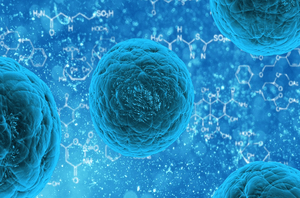Fasting in Ramaḍān reminds us of our hungry and needy brothers and sisters. It increases our empathy for them, removes arrogance towards them and makes us more eager to give ṣadaqah (charity) to them. It also reminds us to be grateful for all the food and drink Allah al-Razzāq (The Supreme Provider) sustains us with.
On the whole, fasting teaches us to be less self-centred. By experiencing hunger, we learn how to curtail our greed, and this should help us to develop the noble quality of īthār: giving preference to others over oneself.
The Excellence of Sadaqah
Ṣadaqah is a sign of the truthfulness of our imān, as we are preferring Allah’s recommendation over our natural urge to hoard wealth. Ṣadaqah extinguishes the anger of Allah, wipes away sins, and prevents evil endings. It wards off calamities, and is a means to cure illnesses. It protects from the punishment of the grave and the Hellfire. On the Day of Judgement, the believer will bask in the shade of his ṣadaqah, and he will be invited to enter Paradise from the Gate of Ṣadaqah.
The angels ask Allah to bless and compensate the person who spends for His sake. What we give as ṣadaqah will always outlive us. The Messenger of Allah ﷺ said, “Whoever gives in charity something equivalent (even) to a date from his honestly earned pure income – for only the pure ascends to Allah – then Allah accepts it with His Right Hand, and then nurtures it for the person as one of you nurtures his baby horse, until it becomes like a mountain” (Bukhārī).
Allah (subḥānahū wa taʿālā) says,
إِنْ تُقْرِضُوا۟ اللّٰهَ قَرْضًا حَسَنًا يُّضَٰعِفْهُ لَكُمْ وَيَغْفِرْ لَكُمْ ، وَ اللّٰهُ شَكُوْرٌ حَلِيْمٌ
If you lend to Allah a good loan, He will multiply it for you and forgive you. For Allah is Most Appreciative, Most Forbearing” (64:17.)
How generous and great is Allah! It is He who creates us, and then gives us all our provisions. He then asks us to give Him that which is surplus to our needs as a loan. He then repays this loan in multitudes. He appreciates every little we give, and forbears when we are not as grateful to Him as we should be.
Be Generous Like the Prophet ﷺ in Ramadan
ʿAbdullāh b. ʿAbbās (radiy Allāhu ʿanhumā) said, “The Messenger of Allah ﷺ was the most generous of all people; and he was the most generous during the month of Ramaḍān when Jibrīl (ʿalayhis-salām) would meet him. Jibrīl would meet him every night in Ramaḍān to study the Qur’ān with him ﷺ. When Jibrīl would meet him, the Messenger of Allah ﷺ would be more generous than strong winds (which cause rain and prosperity)” (Bukhārī).
Imām Nawawī (raḥimahullāh) mentions that this ḥadīth teaches us about the immense generosity of the Prophet ﷺ during this blessed month; to be as generous as possible in this month; and that we should increase in our generosity when meeting the pious servants of Allah, and after parting from them.
Ibn Rajab (raḥimahullāh) wrote, “His generosity ﷺ multiplied in the month of Ramaḍān more than any other month, just as the generosity of his Lord is multiplied in (this month).”
As Allah is more Generous to us in Ramaḍān, we should be more generous to His slaves in order to receive a higher share of His generosity.
Providing Iftar
One of the most virtuous forms of charity in Ramaḍān is to provide ifṭār to the fasting person. Our beloved ﷺ said, “Whoever provides iftār for a fasting person, he will have the same reward as him, without anything being diminished from the reward of the fasting person” (Tirmidhī).
Our righteous predecessors were extremely keen on providing ifṭār to the poor. ʿAbdullāh b. ʿUmar (radiy Allāhu ʿanhumā) used to open his fast only with the poor; and if his family kept them away from him, he would not open his fast that night. If a beggar came to him whilst he was eating, he would get up and give him his own share of the food. He would return to find that his family had eaten what was left; so, he would fast for another day, without having eaten anything.
While we may not be able to reach these levels of selflessness, we should endeavour to give as much as we can. We can provide ifṭār to not just our family and friends, but to poor Muslims in our localities. We can drop off staples (rice, flour etc) at the start of the month/before the month to help them get through Ramaḍān.
One of the beautiful aspects of our dīn is that the benefits of the devotional acts are not limited to the individual. Though fasting may seem like an intense personal act of devotion to Allah (which it is), its wider benefit is to create a healthy cohesive society. It leads to a united ummah, which feels the pangs of its hungry brothers, and cries at the pain of its distressed sisters.
Ṣadaqah in Islam is an expiation for many things such as breaking one’s oath or violating the rules of iḥrām. If anyone is unable to fast, then they are required to pay fidyah. Likewise, charity in Ramaḍān compensates for the deficiencies in our fasts.
“If the one giving charity knew that his charity falls in Allah’s hand before it falls in the poor person’s hand, the joy of the giver would be greater than the joy of the recipient.” – Ibn al-Qayyim (raḥimahullāh)
The Etiquettes of Sadaqah
- Give sincerely, for the sake of Allah alone.
- Give wholeheartedly and willingly.
- Give from the wealth that is most dear to your heart.
- Give secretly (unless there is a greater benefit in giving it publicly).
- Give to your poor family members first.
- Give from wealth that is pure.
- Give graciously. Don’t expect thanks or make them feel ashamed about their poverty.
- Don’t become arrogant about what you have given.
- Give when you fear poverty, and when you have plenty.
- Ask Allah to accept your giving, and fear that it may not be accepted.
Throughout our life, we should plan for the hereafter, and prepare as much ṣadaqāh jāriyah (continuous charity) as we can, so that we reap its benefits long after we have left the world. When giving charity, we should also give on behalf of our families, friends, teachers and those who we are indebted to, along with those whom we have wronged. This will atone for our sins.
“Know that your need for the reward of the ṣadaqah is greater than the need of the one you are giving ṣadaqah to.” – Ibn al-Qayyim (raḥimahullāh)
The Benefits of Sadaqah
There are many benefits of ṣadaqah. These include:
– Ṣadaqah purifies our wealth and increases the barakah in it.
– Ṣadaqah purifies our hearts. As humans, we are predisposed to loving wealth. Giving ṣadaqāh purifies the soul from stinginess, greed and the love of this world.
– Ṣadaqah is a test of the truthfulness of our īmān. By giving away money (something we love) we are being tested: who do we love more? Allah or our money?
– Ṣadaqah is a means to thank Allah for the blessings He has given us.
– Ṣadaqah gives the poor dignity and honours them, so they don’t have to beg.
– Ṣadaqah removes the envy, anger and hatred the poor may have towards the rich.
– Ṣadaqah reduces hoarding, unemployment, poverty, and the chances of a recession.
– Ṣadaqah leads to a fairer society, and reduces crime rates.
– Thus, Ṣadaqah strengthens the ummah and increases the brotherhood and sisterhood within it.
Helping People & Tying Kinship
As well as being generous with our money, we should be generous with our time.
The Messenger of Allah ﷺ said, “The most beloved people to Allah are those who are the most beneficial to people. The most beloved deed to Allah is to make a Muslim happy, or to remove one of his troubles, or to pay off his debt, or to remove his hunger. That I walk with a brother (to fulfil) his need is more beloved to me than that I seclude myself (i‘tikāf) in this masjid (i.e the Prophet’s Masjid in Madīnah) for a month… Whoever walks with his brother to (fulfil his) need, until he secures it for him, Allah will make his feet firm on the ṣirāṭ, on the day when feet will shake. ” (Tabarānī)
Allāhu Akbar! Who wouldn’t want to gain the reward of iʿtikāf in the masjid of the Prophet ﷺ? This Ramaḍān, let us try to accrue similar rewards. Some ways in which we can serve others include:
• Visiting the sick
• Smiling at your fellow believers and saying salām to them.
• Picking up litter.
• Teaching others
• Forgiving a debtor to whom we have lent money or extending the repayment time.
• Offering your time, experience, skills and influence for the sake of Allah.
We should partake in and support causes which champion the rights of the oppressed and deliver justice. The Prophet ﷺ said, “Feed the hungry, visit the sick, and release the prisoner” (Bukhārī).
Similarly, we should be good and kind to our family. Ramaḍān is the time to cleanse our hearts, battle the pride and jealousy of our hearts, and reach out to those we have cut off ties with. It is the perfect opportunity to forgive those who have wronged us, to ask for forgiveness from those we have wronged, and to ask Allah to unite our hearts. If we seek to connect with Allah, we have to connect with our relatives. But if we cut them off, Allah will cut us off. When the Prophet ﷺ was asked about the best form of ṣadaqah, he ﷺ replied, “To (give to) a relative, who conceals his enmity for you” (Aḥmad). Giving to such a person combines ṣilat al-raḥim (tying kinship), swallowing one’s ego and angering Shayṭān. It will also reduce the person’s enmity towards us, and increase the love between us.
May Allah al-Wadūd (The Most Loving) unite our hearts and our ummah.






